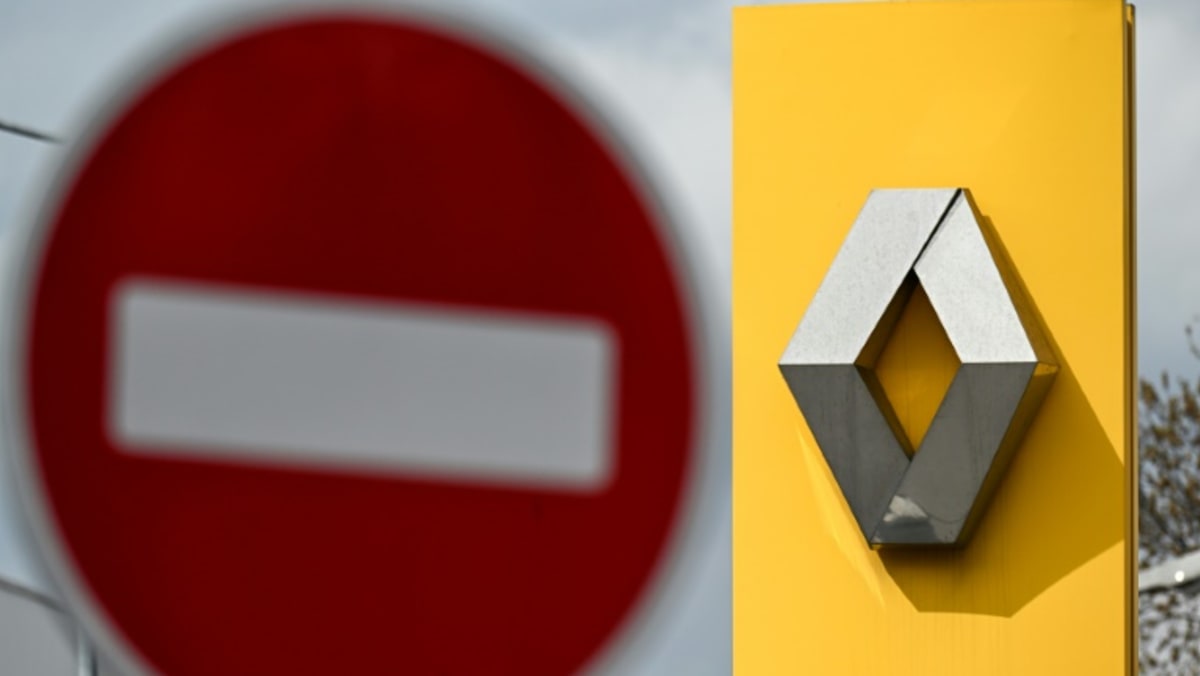Renault hands Russian assets to Moscow, McDonald’s says will exit Russia
MOSCOW: The exodus of Western businesses from Russia deepened on Monday (May 16) as French automaker Renault’s local assets were effectively nationalised and fast food giant McDonald’s said it would exit the market.
Renault handed over its local assets to the Russian government, both parties announced, marking the first major nationalisation since the onset of sanctions over Moscow’s military campaign in Ukraine.
Meanwhile, American fast-food giant McDonald’s said it would exit the Russian market and sell its business after more than 30 years of operations in the country.
Renault controlled 68 per cent of AvtoVAZ, the largest carmaker in Russia with the country’s top brand Lada, but was under pressure to pull out of the country since the start of Russia’s military intervention in Ukraine in late February.
Renault has funnelled billions of euros into the Soviet-era factory since the two automakers signed a strategic partnership agreement in 2008.
No financial details were provided on Monday, but Russian Industry and Trade Minister Denis Manturov said in April that Renault planned to sell its Russian assets for “one symbolic rouble”.
“Agreements were signed on the transfer of Russian assets of the Renault Group to the Russian Federation and the government of Moscow,” the industry ministry said in a statement.
Under the agreement Renault will retain a six-year option to buy back the stake in AvtoVAZ.
The deal also included Renault’s Moscow plant, which makes Renault and Nissan models.
“It was a brave and quick decision,” Renault chief executive Luca de Meo told reporters.
‘NEW PAGE IN HISTORY’
De Meo said Russia and its car industry will likely “continue to suffer for a long time” from sanctions imposed over Ukraine.
He added that the company’s Russian operations would have quickly faced bankruptcy and 45,000 people would have lost their jobs.
“We didn’t have many choices. I think we did the right thing,” he said.
De Meo did not disclose the financial details of the deal.
Renault indicated that a non-cash writedown of €2.2 billion will be made on the firm’s Russia assets in the first half of 2022.
Renault’s shares skidded 0.7 per cent lower on Monday, and are down more than a third from before the invasion began.
Thanks to AvtoVAZ, Russia was Renault Group’s second-largest market behind Europe last year, with around half a million vehicles sold.
Moscow mayor Sergei Sobyanin said production of passenger cars at the Renault plant would resume under the Soviet-era Moskvich (Muscovite) brand, which the French automaker had discontinued.
“We cannot allow thousands of workers to be left without work,” Sobyanin said in a statement.
“In 2022, we will open a new page in the history of Moskvich,” he added.
The first Moskvich cars were produced in 1946 and were inspired by Germany’s Opel Kadett K38, but the brand’s vehicles were notorious for their shoddiness.
Political commentator Anton Orekh said that it was unclear what Moscow authorities planned to do with the plant, but trying to make a new car from scratch in the absence of access to foreign technologies and components would be akin to throwing “billions to the wind.”
MCDONALD’S EXITING RUSSIA
Since President Vladimir Putin sent troops into Ukraine on Feb 24, Renault has had difficulty keeping its operations going due to a lack of components following the imposition of Western sanctions.
The conflict and sanctions have triggered an exodus of foreign corporations.
Russian authorities said they were ready to nationalise foreign assets, and some officials assured Russians that their favourite brands would have domestic alternatives.
In March, citing “unspeakable suffering to innocent people”, McDonald’s closed all of its 850 restaurants in the country.
On Monday, the company said it was looking to sell “its entire portfolio of McDonald’s restaurants in Russia to a local buyer”.
The company added that after the sale, the restaurants would no longer be able to use the McDonald’s name, logo, branding or menu.
The restaurant chain, which launched in Moscow in January 1990 to great fanfare almost two years before the Soviet Union was dissolved, characterised the withdrawal as difficult but necessary.
“We’re exceptionally proud of the 62,000 employees who work in our restaurants, along with the hundreds of Russian suppliers who support our business, and our local franchisees,” chief executive Chris Kempczinski said in a statement.
“However, we have a commitment to our global community and must remain steadfast in our values.”
McDonald’s shares were down 0.6 per cent in midday trading in New York.
For all the latest world News Click Here

